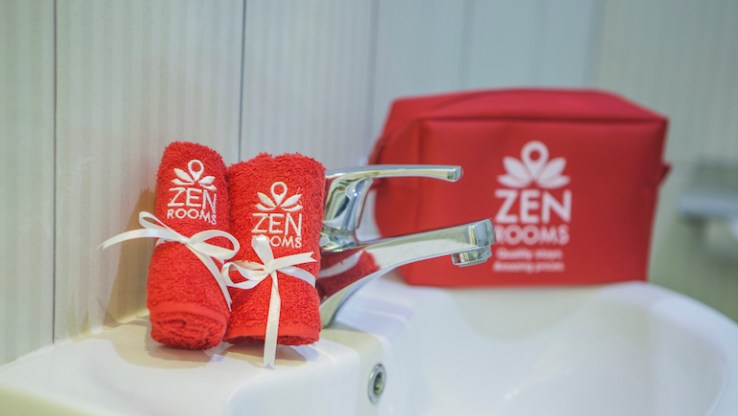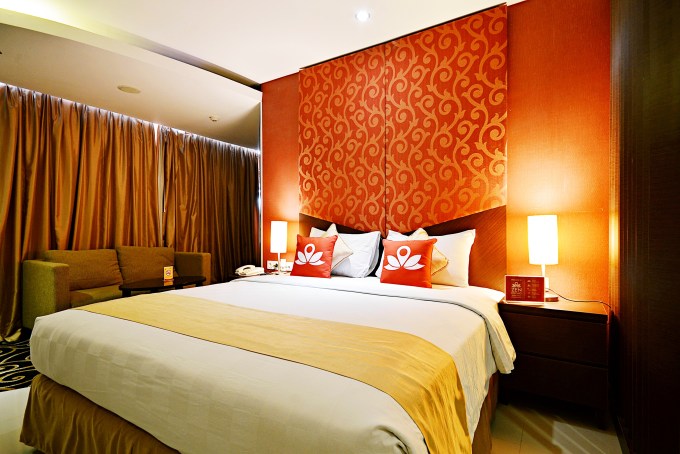
ZenRooms, a hotel booking platform for price-conscious travelers, is the newest startup from Rocket Internet. Like other Rocket Internet companies, ZenRooms replicates a proven business model—in this case, OYO’s—in new marketplaces.
Like India-based OYO (which received a $100 million investment from SoftBank this summer) ZenRooms works with budget hotels to create a network of rooms that it audits in order to provide standardized service. That way, customers are assured they will get a good night’s rest even if they have never heard of the hotel before.
ZenRooms will avoid competing directly with OYO by launching in different countries. It has already started operations in Indonesia, Thailand, and Singapore and eventually wants to become “the biggest budget hotel brand network in Southeast Asia,” says co-founder and global managing director Kiren Tanna, who was previously chief executive officer at Foodpanda, a restaurant delivery platform backed by Rocket Internet.
The next countries it plans to tackle include Malaysia, Vietnam, Sri Lanka, and Pakistan. According to ZenRooms’ own estimate, the budget accommodation market in Southeast Asia is worth $10 billion, with 100 million tourists each year.
“Southeast Asia is very interesting because with a company like Foodpanda each country—Taiwan, Indonesia, Malaysia—is very different. But in terms of accommodation and travel, Southeast Asia behaves like one big country. There is a lot of inner-country travel. Indonesians travel from Jakarta to Ball, Malaysians from one city to another. There is a lot of inter-region travel, from Jakarta to Singapore to Bangkok to Kuala Lumpur, for example,” says Tanna. “You also see a huge influx of tourists from China and Australia, so it’s a very interesting market for traveler accommodation.”

ZenRooms wants to set itself apart from other hotel booking platforms like Agoda by working with businesses that are so small they sometimes don’t even have their own website. These independently owned places offer better rates than chains, but since travelers are wary of staying at a no-name hotel, ZenRooms sets aside a small number of rooms, audits them every two weeks to make sure they meet the company’s criteria, and lists them on its site as part of ZenRooms’ network (if the allocated rooms go unbooked, hotels are allowed to add them back to their regular inventory).
At minimum, each room in the ZenRooms’ network must be clean and free from pests, have a comfortable bed, an in-room hot shower, air conditioner, wi-fi, and television. Each also comes with a goodie bag and other amenities provided by the company. Tanna says ZenRooms’ rates are about 20 to 40 percent cheaper than most budget rooms in its markets, with prices starting at about $9 to $10 (though the average is about $15 to $25).
ZenRooms currently works with about 220 properties in Indonesia and 50 in Thailand (it just launched in Singapore) and will monetize by sharing commissions with each hotel. The company faces competition from established hotel booking platforms (including Agoda and Booking Now, Booking.com’s Southeast Asia app) and online travel agencies, as well as OYO if the company decides to expand beyond India. Like Foodpanda, it may also also have difficulty balancing profit with its ambitious international growth plans (Foodpanda is losing money even though its revenue is growing steadily).
Tanna says ZenRooms plans to be careful with its marketing budget by acquiring customers through partnerships and keeping a close eye on the company’s unit economics to make sure that its costs per room are appropriate for the amount of revenue it makes.
“The average customer stays for two or two and a half nights, with bookings at about $20 to $22 a night, which means that the basket size is very attractive compared to other businesses in Indonesia,” Tanna notes. “If we have a customer acquisitions cost that matches that, then commissions will get us a profitable business.”
[“source-techcrunch”]
